Related Research Articles

Silver Pistol is an album by Brinsley Schwarz, released in 1972. It was the first album to include Ian Gomm.

Nicholas Drain Lowe is an English singer-songwriter, musician and producer. A noted figure in pub rock, power pop and new wave, Lowe has recorded a string of well-reviewed solo albums. Along with being a vocalist, Lowe plays guitar, bass guitar, piano and harmonica.
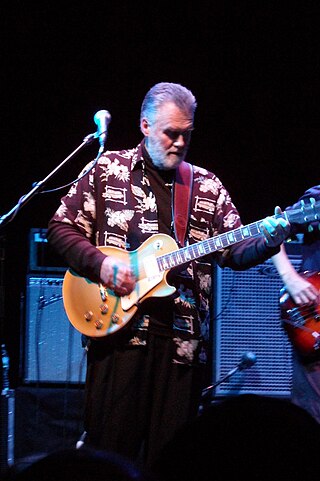
Brinsley Ernst Pieter Schwarz is an English guitarist and rock musician. His family's roots are Dutch. His father was Wym Schwarz, a maths teacher, and his mother was Joan, who was English.
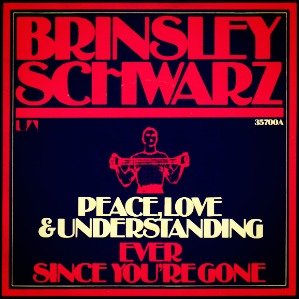
"(What's So Funny 'Bout) Peace, Love, and Understanding" is a 1974 song written by English singer/songwriter Nick Lowe. Initially released by Lowe with his band Brinsley Schwarz on their 1974 album The New Favourites of... Brinsley Schwarz, the song was released as a single and did not chart.
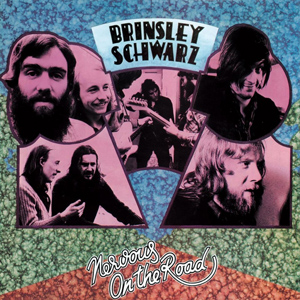
Nervous on the Road is a pub rock album by Brinsley Schwarz, released in 1972.
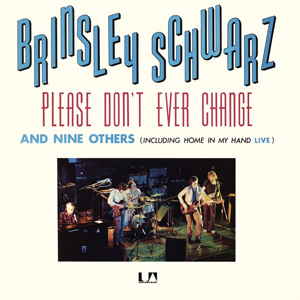
Please Don't Ever Change is a pub rock album by Brinsley Schwarz, released in 1973, named after the featured Goffin/King song, also recorded by The Crickets and The Beatles.

The New Favourites of... Brinsley Schwarz is the final studio album by Brinsley Schwarz, released in 1974, produced by Dave Edmunds.

Despite It All is a Country Rock album by pub rock band Brinsley Schwarz, released in 1970.
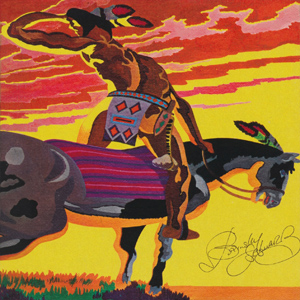
Brinsley Schwarz is the debut album by pub rock band Brinsley Schwarz, released in April 1970.

Rockpile were a British rock and roll group of the late 1970s and early 1980s, noted for their strong pub rock, rockabilly and power pop influences, and as a foundational influence on new wave. The band consisted of Dave Edmunds, Nick Lowe, Billy Bremner and Terry Williams (drums).
Ian Robert Gomm is a British singer-songwriter, who was the rhythm guitarist for Brinsley Schwarz from 1970 to 1974. He was named "Best Rhythm Guitarist" by NME in 1971.
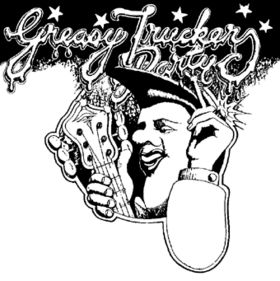
Greasy Truckers Party is a 1972 live album by various artists recorded at a February 1972 Greasy Truckers concert at the Roundhouse in London. The concert featured three bands, Man, Brinsley Schwarz, and Hawkwind, and musician Magic Michael. Originally a double vinyl album, in a limited edition of 20,000 and sold at just £1.50, it rapidly sold out, and became a collector's item.
In the world of British underground rock, the Greasy Truckers Party ... ... looms about as large as the Monterey International Pop Festival does in American rock lore; it wasn't the biggest gig ever played by the bands involved, but for reasons of exposure, and resulting word-of-mouth, and the excerpted live album that followed, it came to define what they were capable of.

Subtle as a Flying Mallet is the second solo album by Dave Edmunds, principally focused on sound-alike remakes of late 1950s and early 1960s hits. All of the vocals are by Edmunds, and many of the songs are true solo efforts in that Edmunds also plays all the instruments. The album produced two Top 10 singles in the UK, remakes of the Phil Spector hit "Baby, I Love You" and The Chordettes' "Born to Be with You". A 2006 reissue of the album includes two former B-sides as bonus tracks.

Once in a Blue Moon is the debut solo album by Frankie Miller, using Brinsley Schwarz as his backing band, showcases Miller's skills as a singer and songwriter. The song "I Can’t Change It" was featured in episode 4 of the first series of the drama series Life on Mars. It was covered by Ray Charles on his album Brother Ray Is At It Again. "After All " had already been recorded by Kenny Rogers and The First Edition on their hit album Tell It All Brother in 1970. It later appeared as the closing song in the 2011 Johnny Depp film, The Rum Diary.

The Rumour was an English rock band in the late 1970s and early 1980s. They are best known as the backup band for Graham Parker, whose early records were credited to Graham Parker & The Rumour. However, The Rumour also recorded on their own, releasing three albums: Max (1977), Frogs, Sprouts, Clogs and Krauts (1979), and Purity of Essence (1980).

Quiet Please... The New Best of Nick Lowe is a 49-track career-spanning collection of songs written by British songwriter Nick Lowe. As well as his solo work, it also features many of his collaborations with the likes of Rockpile, Brinsley Schwarz, Paul Carrack and Little Village. The compilation was released by Proper Records in the UK and Europe and by Yep Roc in the US. The collection was compiled by Gregg Geller.
William Hector Rankin III is an English rock drummer, active in the 1960s and 1970s.
Ernie Graham was a Northern Irish singer, guitarist and songwriter, active from the mid-1960s to the early 1980s.
Malcolm Morley is an English rock singer, guitarist and keyboard player who came to fame in the 1970s. Best known as a founder of Help Yourself and as a member of Man, he continues to perform to this day.

Nick Lowe is an English singer-songwriter, musician, and producer. His discography consists of 14 studio albums, 1 live album, 3 EPs, 23 singles, and 6 compilations. In addition, he has been a performer and producer on numerous albums by other artists.
References
- ↑ Erlewine, Stephen Thomas. "Nick Lowe Songs, Albums, Reviews, Bio & More". AllMusic . Retrieved 24 July 2020.
- ↑ "The 50 Best New Wave Albums". Paste . 13 October 2020. Retrieved 10 February 2024.
- 1 2 Joynson, Vernon (2006). The Tapestry of Delights Revisited - Kippington Lodge (1st ed.). Telford: Borderline productions. p. 483. ISBN 1-899855-15-7.
- 1 2 3 4 Birch, Will (2003). No Sleep Till Canvey Island – The Great Pub Rock Revolution (1st ed.). London: Virgin Books Ltd. pp. 33–60. ISBN 0-7535-0740-4.
- 1 2 3 4 5 Erlewine, Stephen Thomas. "Brinsley Schwarz Songs, Albums, Reviews, Bio & More". AllMusic . Retrieved 19 March 2009.
- ↑ Ellen, Mark (15 April 2011). "Word Podcast 168: Nick Lowe". Word Magazine . Archived from the original on 16 May 2012.
- 1 2 3 4 5 6 7 8 9 10 11 Larkin, Colin, ed. (1992). The Guinness Encyclopedia of Popular Music (First ed.). Guinness Publishing. p. 328. ISBN 0-85112-939-0.
- ↑ Lynskey, Dorian (13 September 2021). "What is the most overhyped cultural artefact of all time?". The Guardian .
- ↑ Joynson, Vernon (2006). The Tapestry of Delights Revisited - Brinsley Schwarz (1st ed.). Telford: Borderline productions. p. 120. ISBN 1-899855-15-7.
- ↑ Sauter, Mike (30 November 2020). "The early Elvis Costello". 91.3 WYEP . Retrieved 10 February 2024.
- ↑ Linden, Amy (4 December 1992). "The Bodyguard (Soundtrack)". Entertainment Weekly . Retrieved 14 July 2014.
- ↑ "Lost in Translation (2003)". IMDb . Retrieved 10 December 2020.